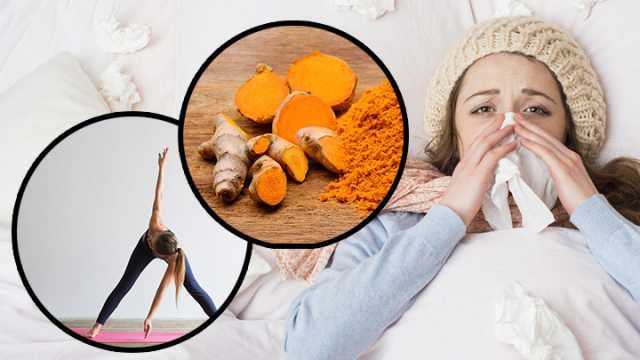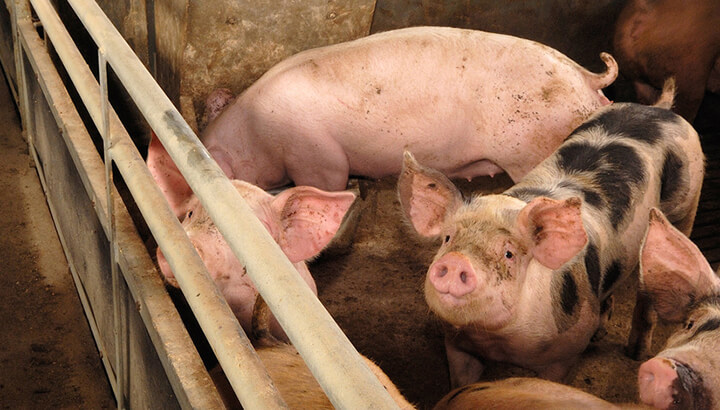
Ever since the H1N1 pandemic of 2009, the very mention of swine flu is enough to send shivers up our spines. The regular flu in all of its horrible glory is bad enough… but swine flu can be much harder to treat. Luckily, there are ways to be proactive and protect yourself from this frightening virus.
What is swine flu?
Swine flu is a respiratory influenza A virus that is common in pigs. The danger occurs when the virus spreads from pigs to humans, as it did in 2009 when the subtype H1N1 led to a pandemic. If a human contracts this type of virus from a pig, as has happened in the past, the resulting infection can be very difficult to treat. This is because pigs can carry not only swine flu, but also human and bird flus, resulting in a sort of “triple threat” flu.
If a person is infected with a “combination flu” of these three different types, complications can arise. If the flu is not treated and the body does not successfully fight off the infection, death may occur. While the last major pandemic of swine flu was back in 2009, there has recently been an outbreak in India and cases are still documented once in awhile all over the United States. In short, swine flu is still a threat to us, and precautions should be taken, especially during cold and flu season.
Symptoms of swine flu resemble those of a normal respiratory influenza. These include coughing, fever, trouble breathing, sore throat and inflammation of the mucous membranes. Because it may be difficult to tell the swine flu from the normal flu, you should definitely seek the advice of a medical professional you trust if you are coming down with flu symptoms.
How does swine flu spread?

According to the Centers for Disease Control and Prevention (CDC):
“Swine flu viruses do not normally infect humans, however, sporadic human infections with influenza viruses that normally infect swine have occurred. When this happens, these viruses are called ‘variant viruses.’ Most commonly, human infections with variant viruses have occurred in people exposed to infected pigs (e.g., children near pigs at a fair or workers in the swine industry). In addition, there have been documented cases of multiple persons becoming sick after exposure to one or more sick pigs. Also, cases of limited person-to-person spread of variant viruses have occurred.”
Once a person has swine flu, it may be spread to others in the way that normal influenzas are spread. If an infected person sneezes on you, or shares food with you, you may become infected, as well. This flu may also be spread through surfaces that have been contaminated with the flu virus.
Swine flu prevention tips
While the following remedies may not guarantee that you won’t come down with a case of swine flu, they will certainly give you a much better chance of avoiding it.
Practice meticulous hand washing
It is important year-round to be vigilant about washing your hands, but this practice gets even more crucial during cold and flu season. Simply washing your hands often, and making sure your children do the same, can mean the difference between health and sickness.
Be sure to wash your hands every time you use the bathroom, every time you blow your nose, after you cook food and before you eat. Also, make sure you wash your hands as soon as you get home from any public place and after riding on any public transportation. If you are near someone who is sick, wash your hands after being in contact with them.
Be sure not to touch your face, or put your fingers in or near your mouth, until your hands are washed. If you are visiting someone in the hospital or another place where there are lots of sick people, bring a spritz bottle of rubbing alcohol to disinfect your hands as needed.
Protect yourself from sick animals
If your work requires you to be in contact with sick animals, be sure to wear a mask and gloves. Skipping this step can lead to dangerous infections, one of which is swine flu (in the case of handling pigs). If you or your children are near pigs (such as at a state fair), keep a safe distance if possible. If you need to be near the pigs, make sure to wash your hands immediately afterward.
Get plenty of restful sleep

It is important to the health of every system in your body to get at least seven hours of sleep every night. Eight is preferable — so get those eight hours whenever you can! One of the systems that greatly suffers when you don’t get enough sleep is your immune system.
If you feel yourself getting sick, or just feeling off, schedule yourself for at least eight hours of sleep for the next few nights. If you can get nine until you’re feeling better, that’s ideal. Your immune system needs ample sleep to fight off any bug that may threaten you.
Spend more time outside
Vitamin D is important for supporting a healthy immune system. Our main source of vitamin D is the sun, so get outside whenever you can for as long as you can (taking proper sun precautions into consideration, of course).
Get plenty of exercise
When you are feeling healthy, get as much exercise as you can. Aim for at least 30 minutes per day of moderate exercise. If you can’t manage this every day, do it at least three times per week. Exercise helps to support immunity, and also helps to release stress. When we are stressed for a chronic period of time, we may be more susceptible to illness.
If you’re feeling under the weather, you obviously may not have enough energy to engage in a workout session. However, if you’re still on your feet, try to at least take a leisurely walk outside in the sunshine. A little bit of movement is better than none.
Eat an immune-boosting diet
All year long, base your diet around plants and eat whole, fresh, nutritious foods from the earth. Some fruits and vegetables are especially good at supporting the immune system — be sure to get plenty of these on your plate. A few examples include dark green leafy vegetables, carrots, garlic (a natural antimicrobial), onions, citrus fruits, hot peppers and pineapple.
Use plenty of antioxidant-filled herbs and spices in your meals. A few supercharged ones include turmeric, clove, oregano, basil and sage. If you need to sweeten your recipes, use raw honey. Not only is it delicious, raw honey also contains potent antimicrobial properties. Plus, be sure to drink at least eight glasses of filtered water per day — hydration is key to wellness.
Skip the processed foods; the preservatives and other chemicals they contain may actually hamper your body’s defenses.
Make an immune-boosting drink

If you feel a bug coming on, add a tablespoon of raw honey and a squeeze of fresh lemon to a glass of filtered water. Honey is soothing to the throat and, as mentioned, has huge antimicrobial capabilities. If you are able, get some manuka honey — it’s the strongest of the bunch. Lemons are a great addition because they are detoxifying and contain a wealth of antioxidant vitamin C. Stir and sip this beverage throughout the day to help keep your immune system in tip-top shape.
Give herbal supplements a try
To help prevent swine flu and other seasonal illnesses, ask your doctor whether supplements including echinacea, cayenne pepper, elderberry, ginseng and olive leaf are safe for your individual health. If your doctor gives you the go-ahead, be sure to only purchase high-quality supplements from a source you trust. Also, use organic whenever you can.

Control of swine flu
If you think you may have been exposed to swine flu (or have any kind of flu), the safest bet is to see a doctor as soon as possible. Your physician can do a test to determine if your flu is swine flu, and advise you on any measures that need to be taken. As swine flu can be lethal in certain cases, follow the advice of your doctor thoroughly. You can also ask if it’s safe to supplement any medications you may be given with home remedies, such as those listed above. Make sure to drink plenty of water.
To keep swine flu from spreading, do what you would do if you had the regular flu (as swine flu can spread in the same way). Stay home from work, school and social functions until you are well again; your doctor should be more than happy to provide a note if you need one. Wash your hands often and be sure to clean surfaces around your home once you’re feeling better. You will also want to wash sheets, blankets and towels.
Remember, when it comes to any illness, prevention is your absolute best bet. Stay safe and stay healthy!
— Tanya Mead

